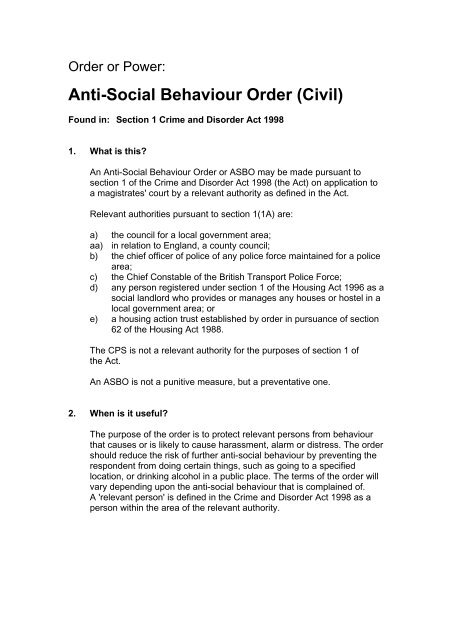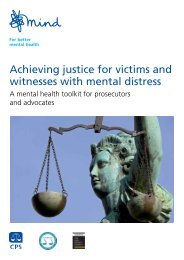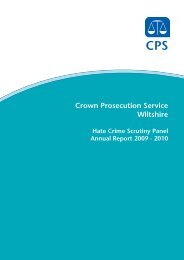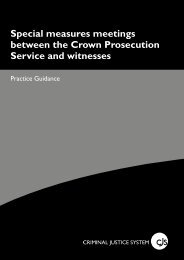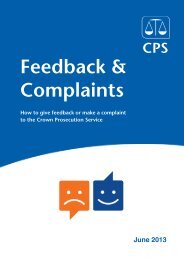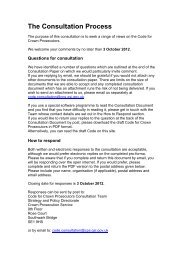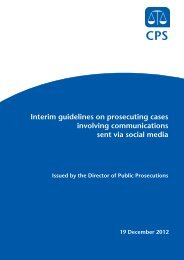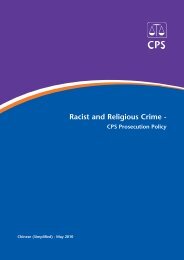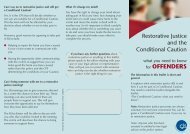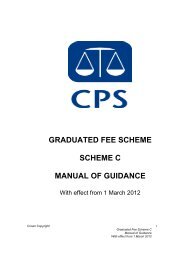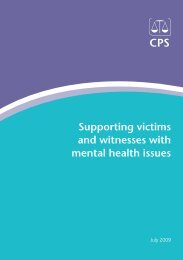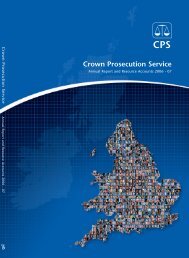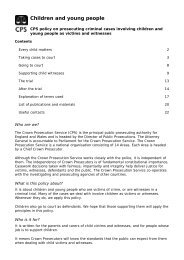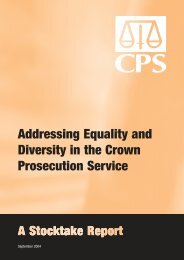Ancillary orders toolkit - Crown Prosecution Service
Ancillary orders toolkit - Crown Prosecution Service
Ancillary orders toolkit - Crown Prosecution Service
- No tags were found...
You also want an ePaper? Increase the reach of your titles
YUMPU automatically turns print PDFs into web optimized ePapers that Google loves.
Order or Power:Anti-Social Behaviour Order (Civil)Found in: Section 1 Crime and Disorder Act 19981. What is this?An Anti-Social Behaviour Order or ASBO may be made pursuant tosection 1 of the Crime and Disorder Act 1998 (the Act) on application toa magistrates' court by a relevant authority as defined in the Act.Relevant authorities pursuant to section 1(1A) are:a) the council for a local government area;aa) in relation to England, a county council;b) the chief officer of police of any police force maintained for a policearea;c) the Chief Constable of the British Transport Police Force;d) any person registered under section 1 of the Housing Act 1996 as asocial landlord who provides or manages any houses or hostel in alocal government area; ore) a housing action trust established by order in pursuance of section62 of the Housing Act 1988.The CPS is not a relevant authority for the purposes of section 1 ofthe Act.An ASBO is not a punitive measure, but a preventative one.2. When is it useful?The purpose of the order is to protect relevant persons from behaviourthat causes or is likely to cause harassment, alarm or distress. The <strong>orders</strong>hould reduce the risk of further anti-social behaviour by preventing therespondent from doing certain things, such as going to a specifiedlocation, or drinking alcohol in a public place. The terms of the order willvary depending upon the anti-social behaviour that is complained of.A 'relevant person' is defined in the Crime and Disorder Act 1998 as aperson within the area of the relevant authority.


